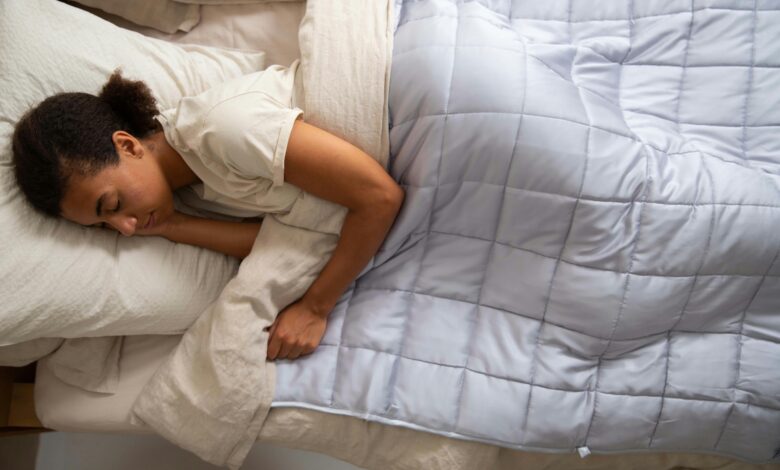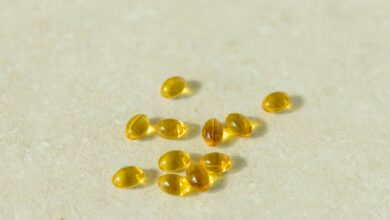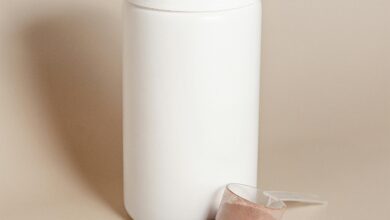How to Use Supplements to Improve Sleep Quality: A Comprehensive Guide

Sleep is essential for physical health, mental clarity, and emotional well-being. Yet, millions of people struggle with sleep issues such as insomnia, restless nights, or poor-quality sleep. While lifestyle changes like maintaining a consistent sleep schedule and creating a relaxing bedtime routine are foundational, supplements can also play a valuable role in improving sleep quality. In this guide, we’ll explore the most effective supplements for sleep, how they work, and how to use them safely.
1. Understand the Importance of Sleep
Why Sleep Matters
- Physical Health: Sleep supports immune function, muscle repair, and cardiovascular health.
- Mental Clarity: Adequate rest enhances memory, focus, and decision-making.
- Emotional Well-Being: Poor sleep is linked to increased stress, anxiety, and mood swings.
Signs of Poor Sleep Quality
- Difficulty falling asleep or staying asleep.
- Waking up feeling unrefreshed.
- Daytime fatigue or irritability.
- Frequent nighttime awakenings.
If you’re experiencing these symptoms, it may be worth exploring supplements alongside other sleep-improving strategies.
2. Popular Sleep Supplements and Their Benefits
1. Melatonin
- What It Is: A hormone naturally produced by the pineal gland that regulates the sleep-wake cycle.
- How It Works: Melatonin signals to your body that it’s time to wind down and prepare for sleep.
- Best For: Jet lag, shift work, or occasional sleeplessness.
- Dosage: Start with 0.5–3 mg taken 30–60 minutes before bed. Higher doses (up to 10 mg) may be used under medical supervision.
- Side Effects: Minimal; some users report grogginess or vivid dreams.
2. Magnesium
- What It Is: An essential mineral involved in over 300 biochemical processes, including relaxation and sleep regulation.
- How It Works: Magnesium helps relax muscles, calm the nervous system, and promote deeper sleep.
- Best For: Muscle tension, anxiety-related insomnia, and restless leg syndrome.
- Forms to Try: Magnesium glycinate or magnesium citrate are highly absorbable and gentle on the stomach.
- Dosage: 200–400 mg daily, preferably before bed.
- Side Effects: High doses may cause diarrhea (less likely with glycinate).
3. Valerian Root
- What It Is: An herbal remedy derived from the root of the Valeriana officinalis plant.
- How It Works: Valerian increases levels of GABA (gamma-aminobutyric acid), a neurotransmitter that promotes relaxation.
- Best For: Chronic insomnia and difficulty falling asleep.
- Dosage: 300–600 mg of standardized extract taken 30–60 minutes before bed.
- Side Effects: Mild drowsiness or headaches in rare cases.
4. L-Theanine
- What It Is: An amino acid found in green tea known for its calming effects without sedation.
- How It Works: L-theanine reduces stress and promotes relaxation by increasing alpha brain waves.
- Best For: Anxiety-related sleep disturbances and light sleepers.
- Dosage: 100–200 mg taken 30 minutes before bed or combined with caffeine during the day for balanced energy.
- Side Effects: Generally safe with no significant side effects.
5. GABA (Gamma-Aminobutyric Acid)
- What It Is: A neurotransmitter that inhibits overactive neurons, promoting calmness and relaxation.
- How It Works: GABA supplements aim to mimic the brain’s natural GABA activity to reduce anxiety and improve sleep.
- Best For: Racing thoughts and high-stress levels.
- Dosage: 100–300 mg taken before bed.
- Side Effects: Rare; some users report mild dizziness or nausea.
6. Chamomile
- What It Is: A flowering herb traditionally used as a natural remedy for relaxation and sleep.
- How It Works: Chamomile contains apigenin, an antioxidant that binds to receptors in the brain to induce sleepiness.
- Best For: Mild sleep issues and general relaxation.
- Forms to Try: Tea, capsules, or tinctures.
- Dosage: Drink 1–2 cups of chamomile tea or take 220–1,000 mg of extract before bed.
- Side Effects: Allergic reactions in individuals sensitive to plants in the daisy family.
7. CBD (Cannabidiol)
- What It Is: A non-psychoactive compound derived from hemp or cannabis plants.
- How It Works: CBD interacts with the endocannabinoid system to regulate stress, pain, and sleep cycles.
- Best For: Anxiety, chronic pain, and disrupted sleep patterns.
- Dosage: Start with 10–25 mg and adjust based on individual response.
- Side Effects: Dry mouth, drowsiness, or changes in appetite.
3. Combining Supplements for Enhanced Results
Some people find greater success by combining complementary supplements. Here are a few popular combinations:
- Magnesium + Melatonin: Promotes relaxation while regulating the sleep-wake cycle.
- L-Theanine + GABA: Reduces stress and calms the mind for better sleep onset.
- Valerian Root + Chamomile: Ideal for deep relaxation and combating insomnia.
Always consult a healthcare provider before mixing supplements to ensure safety and avoid interactions.
4. Lifestyle Tips to Maximize Supplement Effectiveness
Supplements work best when paired with healthy sleep habits:
- Maintain a Consistent Schedule: Go to bed and wake up at the same time every day, even on weekends.
- Create a Relaxing Bedtime Routine: Engage in calming activities like reading, meditation, or taking a warm bath.
- Optimize Your Sleep Environment: Keep your bedroom cool, dark, and quiet. Invest in a comfortable mattress and pillows.
- Limit Stimulants: Avoid caffeine, nicotine, and heavy meals close to bedtime.
- Reduce Screen Time: Minimize exposure to blue light from phones, tablets, and computers at least an hour before bed.
5. Safety Considerations When Using Sleep Supplements
Consult a Healthcare Professional
Before starting any new supplement regimen, especially if you have underlying health conditions or are taking medications.
Watch for Interactions
Certain supplements can interact with prescription drugs:
- Melatonin may interfere with blood thinners or diabetes medications. A doctor can help identify potential risks.
Avoid Long-Term Dependency
While supplements are generally safe for short-term use, relying on them indefinitely may mask underlying issues like sleep disorders or chronic stress. Address the root cause with professional guidance.
6. When to Seek Professional Help
If sleep problems persist despite using supplements and adopting healthy habits, consider consulting a specialist:
- Sleep Specialist: Can diagnose conditions like sleep apnea or restless leg syndrome.
- Therapist: Cognitive-behavioral therapy for insomnia (CBT-I) is highly effective for addressing behavioral causes of poor sleep.
- Primary Care Physician: Can rule out medical conditions contributing to sleep disturbances.



